Natural Treatment for Dog Skin Infections and Pyoderma
![]()
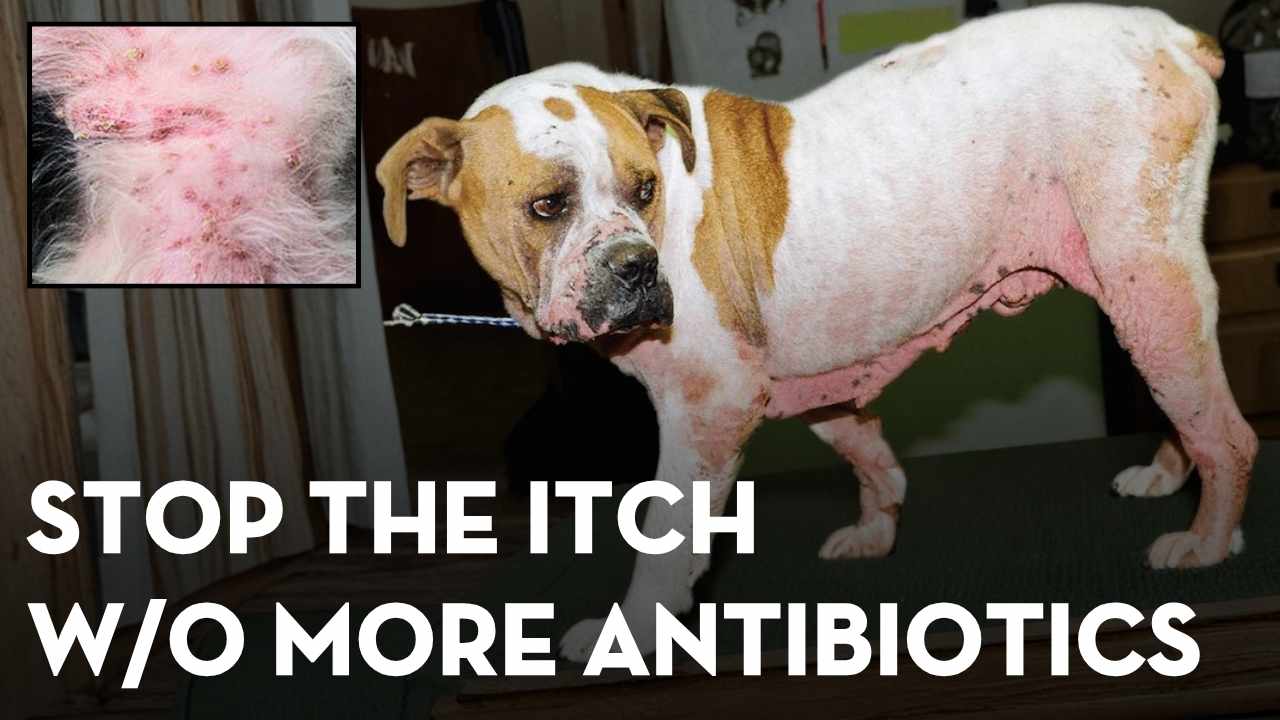
Stop the Itch Without More Antibiotics
Skin disease in dogs and cats often shows up as secondary skin infections. Over the years, I have seen so many pets struggle with recurring itching, redness, and hair loss. Treating the infection is important, but one of the biggest keys to helping your pet is addressing the underlying cause, which is usually allergy-related inflammation.
Today, I want to share the natural remedies I use, including the one I rely on personally for my own aches and pains.
Why Curcumin Can Help With Skin Infections
95% Curcumin can be a great option for pets with skin infections that happen secondary to allergies. It calms inflammation and has natural antibacterial properties that support the skin.
As a side note, I also use the high absorption Curcumin myself for acute pain that tends to show up now that Dr. J is slightly older.
If your dog or cat has recurring skin problems, or even arthritis, this is a very good option to try:
Dr. Jones’ ULTIMATE High Absorption 95 Percent Curcumin
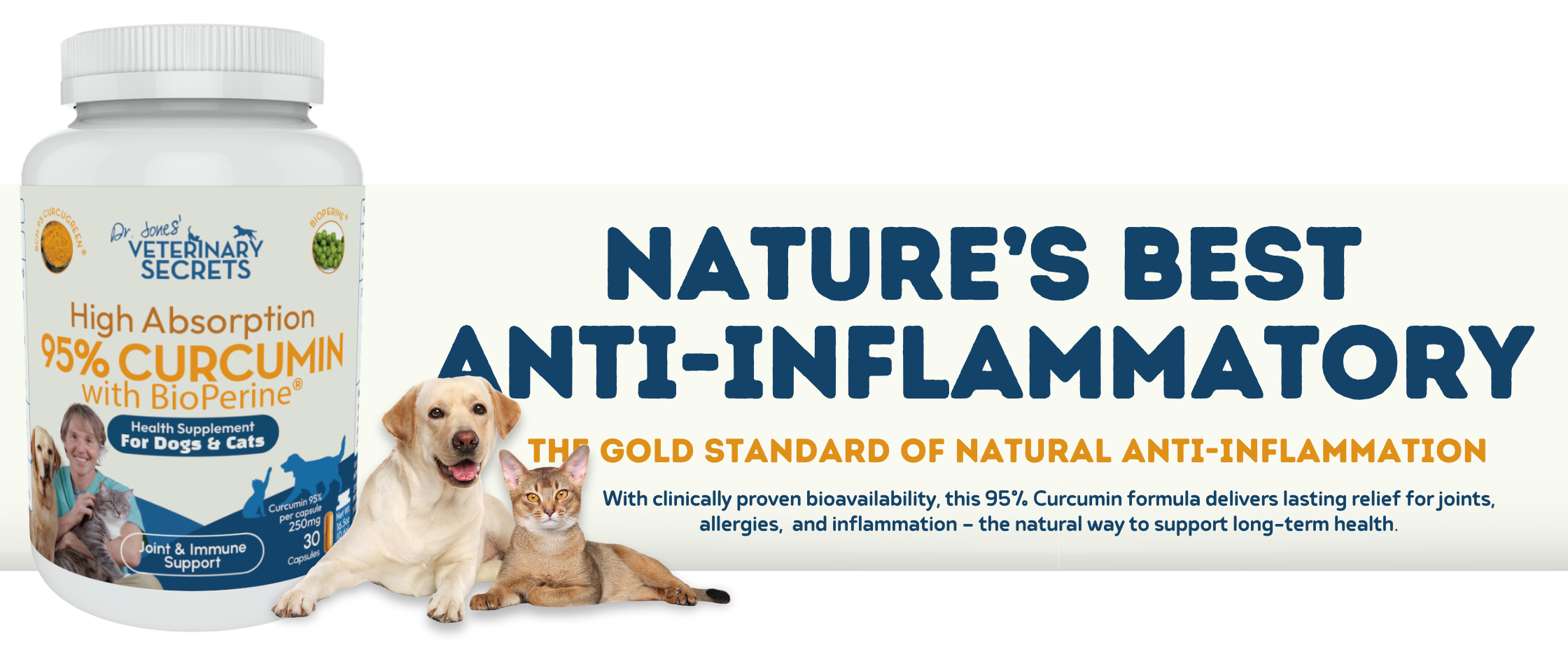
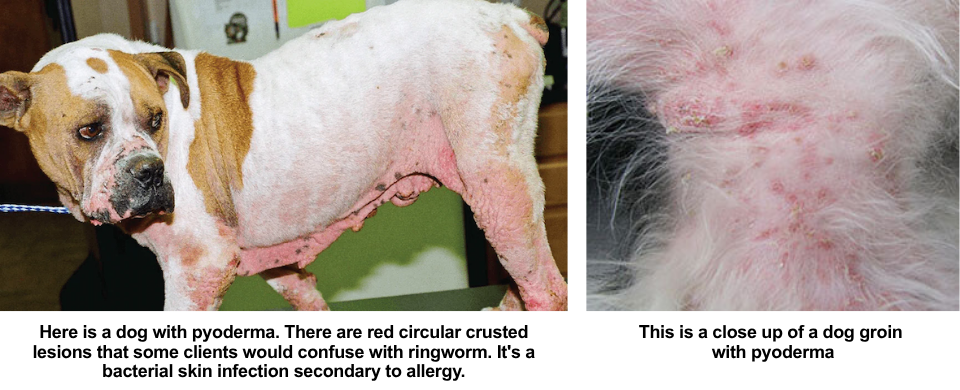
What Is Pyoderma?
Pyoderma is a bacterial skin infection. In puppies it is often called impetigo.
Common signs include:
-
circular crusts
-
red, round patches
-
oozing areas of skin
-
odor
-
dry or flaky skin
-
hair loss
-
itching
In cats, pyoderma usually shows up as:

-
rash and redness
-
scaling and crusts
-
rough or dry patches
-
raised papules that crust over
-
itching
-
hair loss
-
foul odor
Conventional Treatment
The standard medical approach usually includes:
-
Antibiotics for 3 to 6 weeks (often Cephalexin)
-
Topical antibacterial shampoos such as chlorhexidine
This can work, but long courses of antibiotics are not ideal for the gut or the microbiome. Many pets end up with recurring infections.
Holistic Options That Work
Here are the natural treatments I use for my own pets, including Tula and Cassian.

1. Homemade Antibacterial Shampoo
A gentle, effective recipe:
-
1 cup black or green tea
-
2 tablespoons apple cider vinegar
-
40 drops tea tree oil (do not use tea tree oil on cats)
-
2 tablespoons Castile soap
This helps calm inflammation and reduce surface bacteria.
2. Honey
Dark, unpasteurized honey has strong antibacterial properties.
Use it:
-
Topically on infected areas
-
Orally at 1/2 teaspoon per 10 lbs, twice daily
Great for both dogs and cats.
3. Propolis
Propolis, or “bee glue,” is well studied for skin infections.
You can use it:
-
Topically as a spray
-
Orally at 100 mg per 10 lbs daily
It is safe, not sticky, and very effective for many pets.
4. Coconut Oil
Coconut oil contains medium-chain fatty acids that fight bacteria and fungi.
The key compound, lauric acid, makes up nearly 50 percent of coconut oil and has been shown to block bacterial growth.
I use this on Tula’s recurring nose infection. Topical coconut oil has been the most effective treatment for her.
5. Anti-Inflammatory Skin Cream

A natural, soothing skin barrier recipe:
-
2 tablespoons coconut oil
-
1 tablespoon shea butter
-
2 tablespoons beeswax
-
2 tablespoons safflower oil
These ingredients help protect irritated skin.
My Dr. Jones’ Skin Relief Balm uses these same principles and has worked well for chronic skin problems, including Tula’s nose issue.
6. Olive Leaf Extract
Olive leaf is a powerful natural antibiotic and antiviral. It has been shown to fight:
-
bacterial skin infections
-
fungal infections
-
candida
-
urinary tract infections
-
respiratory infections
Dosing for dogs and cats:
1 mg to 5 mg per lb, twice daily
Start low and increase slowly if there is no vomiting or diarrhea.
I use olive leaf as both a natural antibiotic and antiviral. I would consider it for skin infections, bladder infections, or even kennel cough.
7. Quercetin
Quercetin, the flavonoid from apple peel, has documented antibacterial activity.
Here is one study:
https://pubmed.ncbi.nlm.nih.gov/35458691/
Dose: 50 mg per 15 lbs daily
8. Curcumin (95 Percent)
Curcumin is the active compound in turmeric. It reduces inflammation and supports the body in fighting infection. For pets with painful, inflamed skin, it helps on both fronts.
Dose: 50 mg per 10 lbs daily
You can find the one I formulated here:
Dr. Jones’ ULTIMATE High Absorption 95 Percent Curcumin

Final Thoughts: Treat Both the Infection and the Inflammation
Skin disease often comes back because we only treat the infection and forget the inflammation underneath. Your pet needs help with both.
My go-to plan:
-
Start with the homemade shampoo
-
Add an oral remedy such as Curcumin, olive leaf, propolis, or quercetin
-
Support the skin externally with coconut oil or a natural balm
Curcumin has been one of the most effective options for pets I have treated. If you have not tried it yet, it is worth considering.
Click To Get A Free Copy of My E-Book!

Stay Connected with Dr. Andrew Jones DVM:
- Visit our website: https://veterinarysecrets.com/
- Subscribe for more pet care tips: https://www.youtube.com/@VeterinarySecrets
- Facebook: http://facebook.com/veterinarysecrets
- Instagram: http://instagram.com/veterinarysecrets
- Twitter: http://twitter.com/dogandcatdoc
- Pinterest: http://pinterest.com/veterinarysecrets
- Podcast: http://vetsecrets.podbean.com/
P.S.
If a dog is doing well on allergy medication but starts itching again, one of the first things I check is for a secondary skin infection. If there is one, we treat it.
P.P.S.
Using the holistic options first is usually far better than jumping straight to antibiotics.
Start with the shampoo, then add an oral remedy that can help with both the infection and the inflammation.
And yes, 95 percent Curcumin is an excellent place to start.
Here is the supplement I recommend:
Dr. Jones’ ULTIMATE High Absorption 95 Percent Curcumin




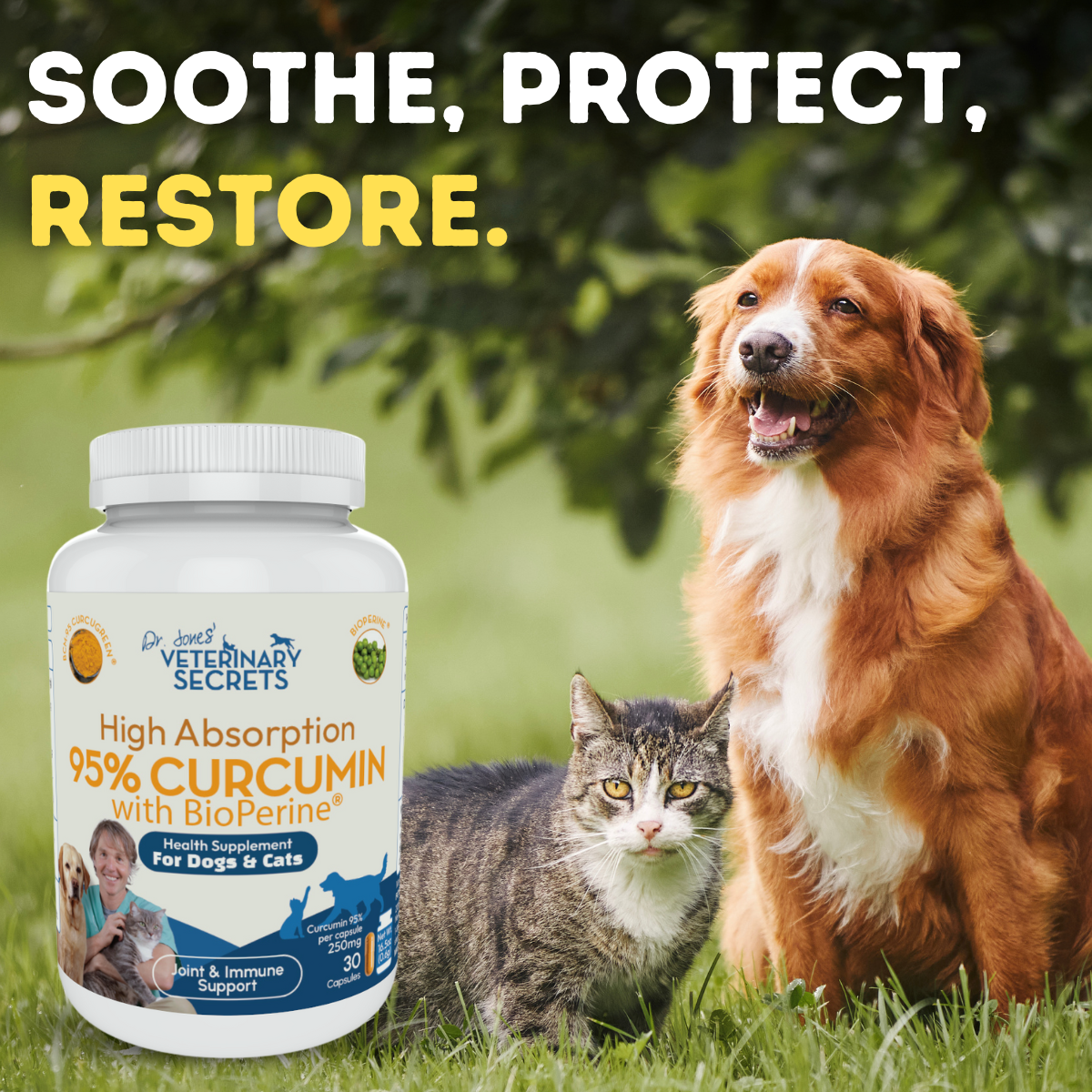




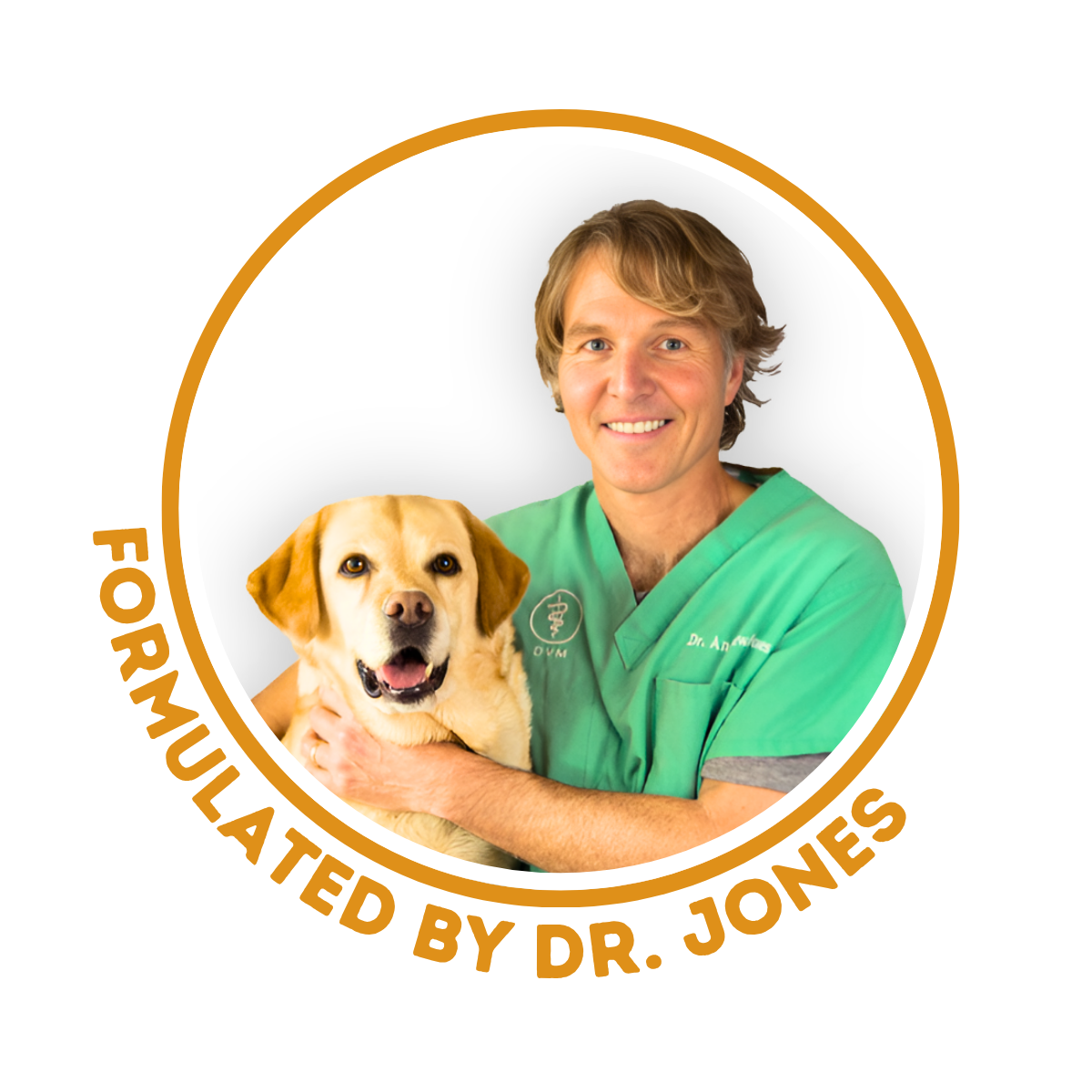
Great article! My 100 lbs Rhodesian Ridgeback mix licks his anus a lot and it’s red. I gave him 30 mg of Zyrtec tonight. I’ll give him the curcumin tomorrow. Ordering licorice when I can and CBD oil.
Thanks! Sounds like you’re putting together a solid natural support plan. Redness and licking often come from irritation or inflammation, so the steps you’re taking — curcumin, licorice, and CBD — can really help calm things down.
Just keep monitoring him, make sure he doesn’t overdo the licking, and keep the area clean. Small consistent steps usually make the biggest difference. Your Ridgeback is lucky to have such a thoughtful owner!
Is the shampoo safe for the face?
Yes, it is safe for the face as long as you keep it out of the eyes, nose, and mouth. Gently lather the area around the cheeks and chin, rinse well, and pat dry.
This article goes into exactly how to use it safely and effectively so the itchy skin calms down without antibiotics. Just take your time and be gentle around sensitive spots. Your pup or kitty will thank you!